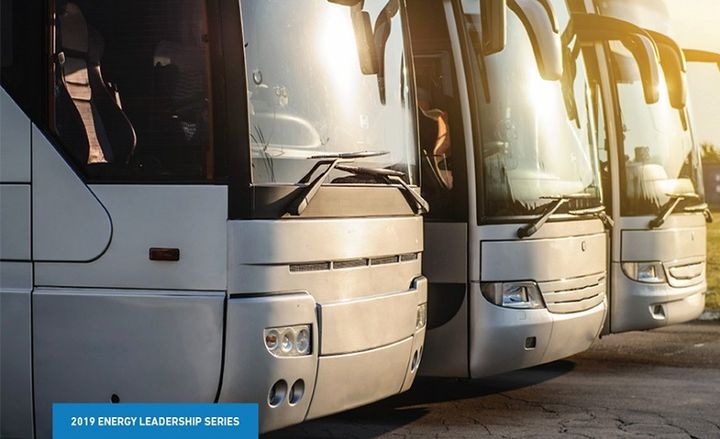Fleets Still Optimistic About EVs Despite Roadblocks
Approximately 90% of fleet owners have assessed, or plan to asses, the feasibility of incorporating more electric assets into their operations, though a major concern continues to be the lack of electric vehicle infrastructure and EV range anxiety, according to a 2019 electric vehicle survey from Mortenson.
Approximately 90% of fleet owners have assessed, or plan to asses, the feasibility of incorporating more electric assets into their operations, though a major concern continues to be the lack of electric vehicle infrastructure and EV range anxiety, according to a 2019 electric vehicle survey from Mortenson.
Other findings from the survey include 60% of fleet owners saying EVs are the best clean transportation option, and 80% predict that future EVs will have ranges that will match their fleet needs.
After infrastructure concerns, the fleet owners believe vehicle purchase price is the second largest challenge to transition to clean technology. This was followed by financing and then how this would alter their operations. The study also found that about half of fleet owners anticipate upfront costs for clean transportation will be higher than what they spend today, while 40% think costs will stay about the same.
Fleet owners in the study believe that today’s public/utility incentives are not sufficient enough to support widespread adoption of clean transportation vehicles.
Fleets involved in the study, on average, also said that 23% of their current fleet is comprised of “clean transportation” assets, and added that in about five to seven years, this average may increase to 48%.
Meanwhile, after EVs, fleets said that compressed natural gas (CNG) vehicles were their second preferred alt-fuel choice, followed by hybrid vehicles, and finally propane and hydrogen/fuel cell.
The major reason fleets in the study were interested in alt-fuel vehicles was primarily driven by environmental responsibility, according 47% of fleets involve in the Mortenson study. This was followed by 38% of fleets following organizational goals or initiatives, and finally 13% of fleets were following government mandates.
The study also found that three out of four fleets owners anticipate clean transportation vehicles will only slightly reduce operating costs or even increase costs compared to what they spend today.
Source: https://www.automotive-fleet.com
FLEET MANAGEMENT AUDIT
Fleet management is the use of a set of vehicles in order to provide services to a third-party, or to perform a task for our organization, in the most efficient and productive manner with a determined level of service and cost.
Fleet management activities are shown in the following graph 1:

Graph 1: fleet management activities
The proposal audit analyses and assesses all fleet management activities shown in the graph 1, and its main goals are:
- Know the overall status of the fleet management activities
- Provide the analysis, the assessment, the advice, the suggestions and the actions to take in order to cut costs and increase the efficiency and efficacy of the fleet management activities
With the information obtained, we’ll elaborate a report that holds the overall status of the fleet management as well as the suggestions, recommendations and the measures to take in order to cut costs and optimize the fleet management activities.
CLICK ON THE FOLLOWING LINK TO DOWNLOAD THE PROPOSED FLEET MANAGEMENT AUDIT:
Fleet Management Audit AFMC
Contact:
José Miguel Fernández Gómez
34 678254874
info@advancedfleetmanagementconsulting.com



